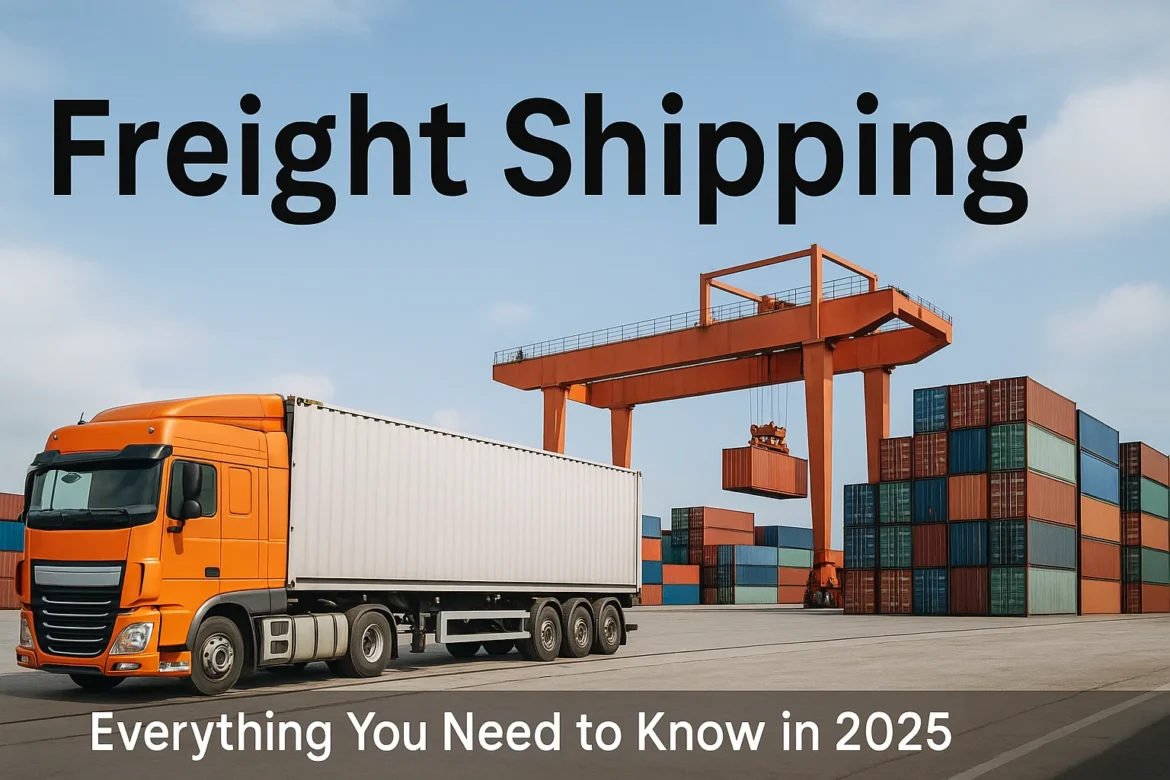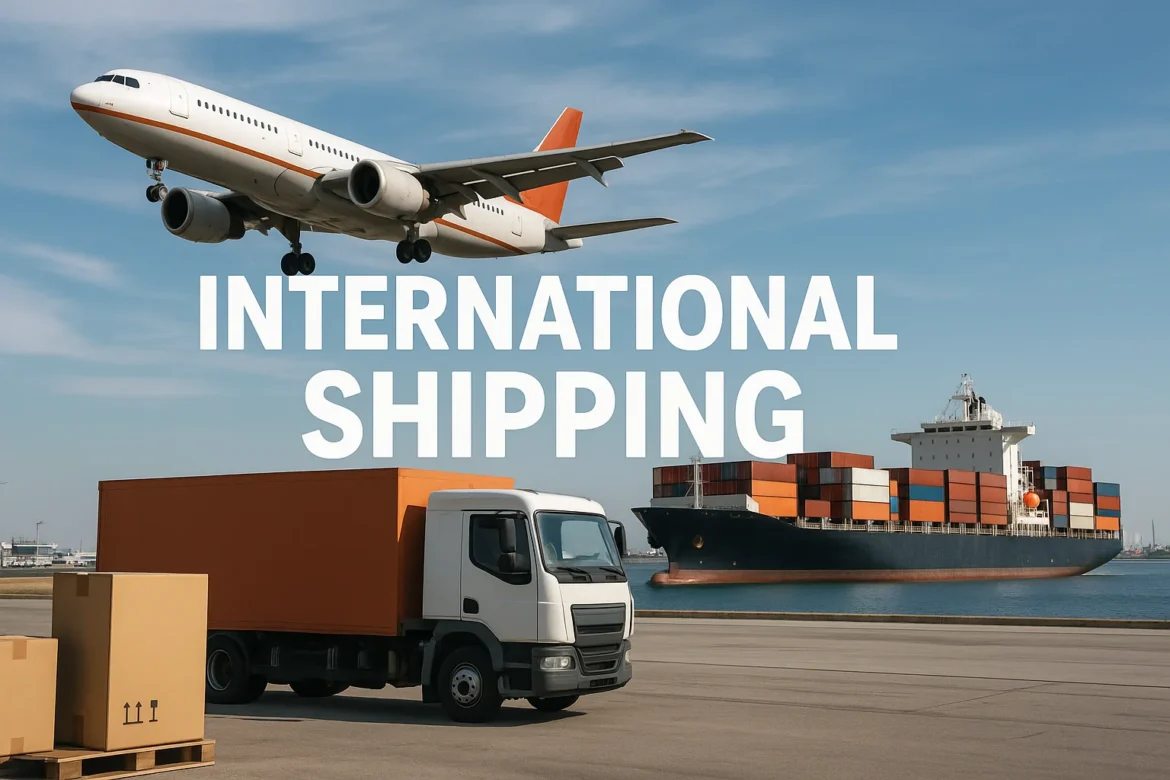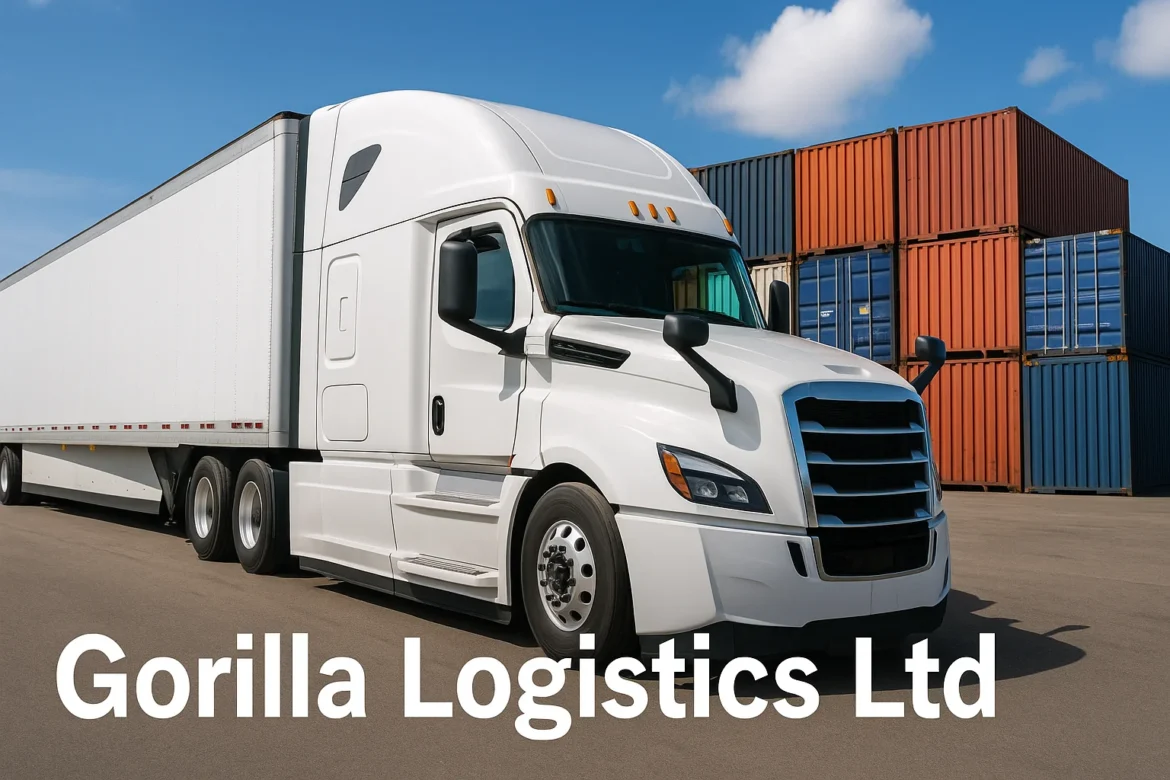📦 Understanding Freight Shipping in Modern Logistics
Freight shipping refers to the process of transporting large quantities of goods via various modes such as trucks, trains, ships, or airplanes. Unlike standard parcel services, freight shipping is tailored for heavy or bulk cargo that exceeds typical weight and size restrictions. It is a cornerstone of global trade, supporting everything from small e-commerce businesses to multinational manufacturers.
Whether it’s raw materials crossing continents or finished products reaching retail shelves, freight shipping plays a vital role in maintaining supply chains. It connects manufacturers to markets, vendors to warehouses, and businesses to consumers around the world.
🚛 How Does Freight Shipping Work?
The process begins when a shipper schedules a pickup from a freight carrier. Depending on the type of goods and urgency, the carrier might consolidate multiple shipments (LTL – Less than Truckload) or dedicate a full vehicle (FTL – Full Truckload). After proper documentation and packaging, the shipment is loaded and transported to its destination, passing through logistics hubs or customs if necessary.
Companies rely on freight shipping to move pallets, crates, or containers. Advanced tracking technologies, route optimization, and modern fleet management tools ensure timely and efficient delivery.
You can learn more about freight processes and tracking systems from FreightWaves.
🛣️ Types of Freight Shipping Services
Different needs call for different shipping solutions. Here are the main service types involved in freight shipping:
1. LTL (Less than Truckload): Ideal for smaller shipments that don’t fill an entire truck. Businesses share space, reducing costs.
2. FTL (Full Truckload): Reserved for larger shipments that require an entire vehicle. It offers faster transit and reduced handling.
3. Rail Freight: Suited for long distances and bulk goods. It’s cost-effective for industries like mining, agriculture, or construction.
4. Ocean Freight: Used for international shipping via cargo ships. It’s slower but the most economical for large-scale imports and exports.
5. Air Freight: Fastest but most expensive. Suitable for high-value or time-sensitive items.
6. Intermodal Shipping: Combines multiple modes, such as rail and truck, to optimize time and cost.
Each method is chosen based on delivery timeframes, distance, volume, and budget constraints. Companies often use logistics software to determine the best freight shipping strategy.
🌎 Why Freight Shipping Is Crucial to Global Commerce
Freight shipping is the invisible engine of global commerce. It’s how food reaches grocery stores, clothes arrive at retail outlets, and machinery powers factories. Without it, economies would stall, production would cease, and consumers would feel the impact immediately.
Shipping industries coordinate across countries, managing customs, documentation, and safety regulations. With e-commerce booming post-2020, efficient freight systems are more critical than ever. Platforms like DHL Global Forwarding have optimized cross-border freight operations, contributing to faster and more predictable deliveries.
📈 Benefits of Freight Shipping for Businesses
Utilizing freight shipping services provides companies with multiple advantages:
- Scalability: Businesses can ship anything from a single pallet to multiple containers.
- Reliability: Real-time tracking systems and logistics networks ensure shipments arrive on time.
- Cost Efficiency: Consolidated shipping options lower overall transport costs.
- Custom Solutions: Tailored services like temperature control or hazardous material handling meet specific industry needs.
- Global Reach: International freight opens doors to foreign markets and suppliers.
For expanding startups or established enterprises, freight shipping is a reliable backbone for operational growth and customer satisfaction.
📋 Common Documents in Freight Shipping
Shipping freight isn’t just about moving boxes—it’s about compliance. Several documents are critical to ensure a smooth transit:
- Bill of Lading (BOL): A contract between the shipper and carrier detailing the shipment.
- Freight Bill: An invoice that includes all freight charges.
- Commercial Invoice: Essential for international freight, detailing the goods and value.
- Packing List: Outlines the contents for customs and receivers.
- Certificate of Origin: Specifies where the goods were manufactured.
Failure to prepare accurate documentation can result in delays, fines, or even seizure of goods. That’s why working with experienced freight shipping providers is essential.
💲 Freight Shipping Costs: What Determines the Price?
Freight shipping costs vary widely depending on several factors:
- Weight and Dimensions: Heavier or bulkier items cost more to ship.
- Distance: The farther the destination, the higher the cost.
- Mode of Transport: Air is more expensive than ocean or rail.
- Urgency: Expedited shipments carry a premium.
- Seasonality: Peak times like holidays or weather conditions may impact rates.
- Accessorial Charges: Extra services like liftgate use, residential delivery, or inside pickup add to the bill.
Many freight brokers offer free quotes, and businesses often use freight calculators to estimate costs before committing. Explore calculators on Freightos.
🔄 Freight Forwarders vs. Freight Carriers
A freight forwarder acts as an intermediary between the shipper and the carrier. They don’t move the freight themselves but coordinate logistics, documentation, and compliance across multiple carriers.
A freight carrier, on the other hand, owns the transportation assets—trucks, planes, ships—and moves the goods physically. Depending on your shipment’s complexity, working with a freight forwarder may save time, money, and regulatory headaches.
🧱 Freight Shipping and Supply Chain Integration
Freight shipping is not an isolated process. It’s tightly integrated with the entire supply chain—from procurement to inventory management and distribution. Today, businesses rely on logistics software to plan freight movements, monitor performance, and manage warehouse operations in real time.
With tools like transportation management systems (TMS), companies streamline routing, scheduling, and vendor communication. This integration reduces waste, improves delivery times, and enhances customer satisfaction.
Learn more about supply chain software through Oracle SCM.
🚨 Challenges in Freight Shipping Today
Despite its strengths, freight shipping faces challenges:
- Port Congestions: Especially post-pandemic, delays at ports continue to cause delivery issues.
- Labor Shortages: A lack of truck drivers or logistics staff strains supply chains.
- Rising Fuel Costs: Impact transportation budgets and increase overall freight rates.
- Geopolitical Issues: Tariffs, trade wars, and conflicts disrupt international freight lanes.
- Environmental Regulations: Carriers are under pressure to reduce carbon emissions.
Companies must navigate these hurdles with flexible strategies and robust logistics partnerships.
🌱 The Future of Freight Shipping: Innovation & Sustainability
Sustainability is the next big thing in freight shipping. From electric trucks to low-emission vessels, the industry is actively reducing its environmental footprint. Innovations like AI-driven route optimization, drone deliveries, and blockchain-based documentation are transforming how freight is shipped and tracked.
Major players like Maersk and FedEx are investing heavily in green technology and carbon neutrality goals, indicating a cleaner, smarter shipping future.
🏁 Final Thoughts: Is Freight Shipping Right for You?
If your business handles high-volume goods, raw materials, or international products, freight shipping is a must. It offers the flexibility, reliability, and scale needed to thrive in today’s fast-moving markets.
Understanding the fundamentals—modes of transport, costs, regulations, and the role of technology—gives you a strategic edge. Whether you’re working with a freight forwarder or a direct carrier, the right freight partner can mean the difference between smooth operations and logistical chaos.
As global commerce expands, freight shipping remains one of the most critical pillars of business logistics.
If you’re ready to streamline your logistics or get a custom quote, visit allshifting.com today and explore tailored freight shipping solutions designed for 2025 and beyond.



